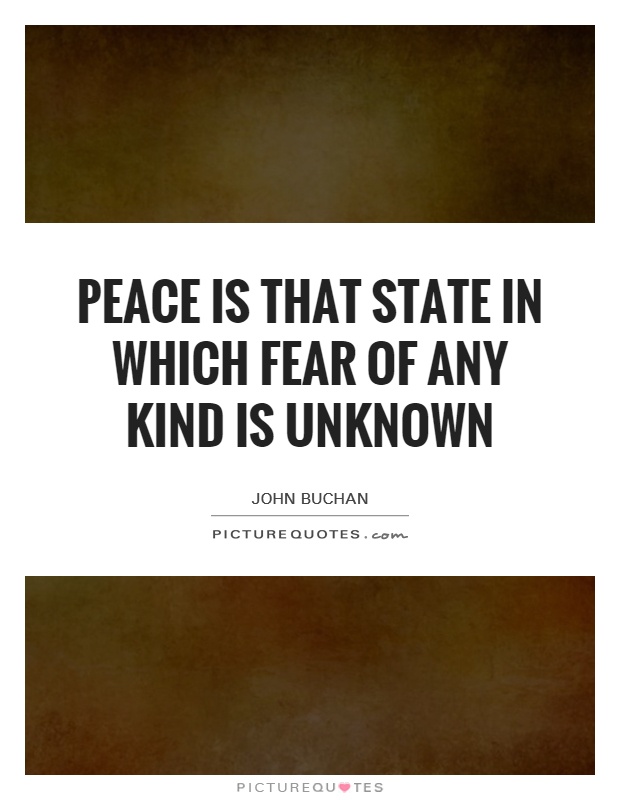Peace is that state in which fear of any kind is unknown

Peace is that state in which fear of any kind is unknown
John Buchan, a Scottish novelist and politician, is best known for his adventure novels and spy thrillers. His works often explore themes of courage, loyalty, and the triumph of good over evil. In the context of Buchan's writings, the idea that "peace is that state in which fear of any kind is unknown" holds particular significance.Buchan's characters are often faced with dangerous and uncertain situations, where fear is a constant companion. Whether it is the protagonist of "The Thirty-Nine Steps" on the run from enemy spies, or the hero of "Greenmantle" embarking on a perilous mission behind enemy lines, fear is a powerful force that must be overcome in order to achieve peace and security.
For Buchan, peace is not simply the absence of conflict or war, but a state of inner calm and security that comes from facing one's fears and overcoming them. In his novels, characters who are able to confront their fears and act with courage and determination are ultimately able to find peace and fulfillment.
One of Buchan's most famous characters, Richard Hannay, exemplifies this idea of finding peace through courage and action. In "The Thirty-Nine Steps," Hannay is thrust into a world of espionage and danger, where he must navigate a web of deceit and betrayal in order to clear his name and prevent a catastrophic act of sabotage. Despite facing overwhelming odds and constant danger, Hannay remains resolute and determined, refusing to give in to fear.
Through his actions and his unwavering courage, Hannay is able to achieve a sense of peace and security that transcends the chaos and uncertainty of the world around him. In the face of danger and adversity, he finds a sense of inner peace that comes from knowing that he has faced his fears and emerged victorious.












 Friendship Quotes
Friendship Quotes Love Quotes
Love Quotes Life Quotes
Life Quotes Funny Quotes
Funny Quotes Motivational Quotes
Motivational Quotes Inspirational Quotes
Inspirational Quotes